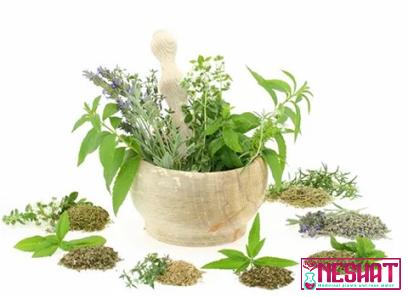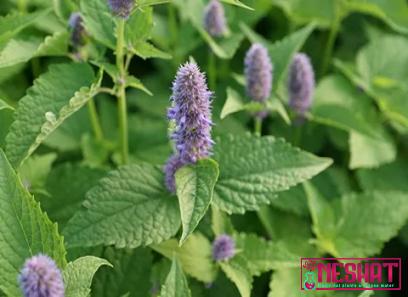This growing fascination with holistic approaches to wellness has fueled the demand for medicinal plants. As consumers become more conscious of their health and well-being, businesses involved in the cultivation, processing, and distribution of medicinal plants find themselves in a flourishing market. In this article, we will explore the potential and lucrative opportunities presented by the business of medicinal plants. 1. Understanding the Market: The market for medicinal plants is vast and diverse, covering various sectors such as pharmaceuticals, herbal supplements, traditional medicine, and personal care products. According to market research, the global herbal supplements market is projected to reach $133.25 billion by 2026, with a compound annual growth rate of 6.3% (CAGR). This remarkable growth indicates the enormous potential for businesses specializing in medicinal plants.

.
 2. Cultivation and Processing: Medicinal plant cultivation requires specialized knowledge and expertise. Farmers can establish profitable businesses by growing high-demand medicinal plants and herbs. Whether through traditional cultivation methods or the adoption of advanced techniques such as hydroponics and vertical farming, farmers have the opportunity to capitalize on the increasing demand for medicinal plants. Processing and extraction are also crucial steps in the medicinal plant business. Extraction methods, such as distillation, solvent extraction, and cold pressing, are employed to obtain essential oils and active compounds. These extracted products serve as valuable inputs for various industries like pharmaceuticals, cosmetics, and aromatherapy.
2. Cultivation and Processing: Medicinal plant cultivation requires specialized knowledge and expertise. Farmers can establish profitable businesses by growing high-demand medicinal plants and herbs. Whether through traditional cultivation methods or the adoption of advanced techniques such as hydroponics and vertical farming, farmers have the opportunity to capitalize on the increasing demand for medicinal plants. Processing and extraction are also crucial steps in the medicinal plant business. Extraction methods, such as distillation, solvent extraction, and cold pressing, are employed to obtain essential oils and active compounds. These extracted products serve as valuable inputs for various industries like pharmaceuticals, cosmetics, and aromatherapy.
..
 3. Sustainable Sourcing and Ethical Practices: As consumers become more conscious of sustainability and ethical sourcing, businesses in the medicinal plant industry must adapt to meet these demands. Implementing sustainable farming practices, promoting organic cultivation, and sourcing plants from authorized suppliers are essential factors that can ensure a competitive edge in the market. Ethical practices, such as fair trade agreements with local communities, protect biodiversity, and ensure equitable resource sharing, are also gaining significance and positively impacting the business of medicinal plants. 4. Innovations and Research: The medicinal plant industry is driven by research and innovation. Companies investing in research and development activities to identify new plant species, unlock their medicinal potential, and develop novel formulations are better positioned to succeed in this dynamic market. Collaboration with academic institutions and partnerships with botanical gardens and herbaria can provide businesses with valuable resources and expertise in plant identification, cultivation techniques, and extraction methods.
3. Sustainable Sourcing and Ethical Practices: As consumers become more conscious of sustainability and ethical sourcing, businesses in the medicinal plant industry must adapt to meet these demands. Implementing sustainable farming practices, promoting organic cultivation, and sourcing plants from authorized suppliers are essential factors that can ensure a competitive edge in the market. Ethical practices, such as fair trade agreements with local communities, protect biodiversity, and ensure equitable resource sharing, are also gaining significance and positively impacting the business of medicinal plants. 4. Innovations and Research: The medicinal plant industry is driven by research and innovation. Companies investing in research and development activities to identify new plant species, unlock their medicinal potential, and develop novel formulations are better positioned to succeed in this dynamic market. Collaboration with academic institutions and partnerships with botanical gardens and herbaria can provide businesses with valuable resources and expertise in plant identification, cultivation techniques, and extraction methods.
…
 5. Regulatory Compliance: Given the inherent risks associated with the consumption of herbal products, regulatory compliance plays a critical role in the medicinal plant business. Businesses must adhere to stringent quality control measures to ensure the safety and efficacy of their products. Compliance with international standards such as ISO 9001, Good Manufacturing Practices (GMP), and adherence to relevant national regulations, certifications, and licenses are crucial to gain consumer trust and credibility in the market. Conclusion: The business potential for medicinal plants is on the rise, driven by the increasing demand for natural and holistic healthcare solutions. With a strong understanding of the market, sustainable practices, innovative approaches, and compliance with regulations, aspiring entrepreneurs can seize the opportunities presented by this thriving industry. As society continues to prioritize wellness and a greater connection with nature, the market for medicinal plants has the potential to grow exponentially.
5. Regulatory Compliance: Given the inherent risks associated with the consumption of herbal products, regulatory compliance plays a critical role in the medicinal plant business. Businesses must adhere to stringent quality control measures to ensure the safety and efficacy of their products. Compliance with international standards such as ISO 9001, Good Manufacturing Practices (GMP), and adherence to relevant national regulations, certifications, and licenses are crucial to gain consumer trust and credibility in the market. Conclusion: The business potential for medicinal plants is on the rise, driven by the increasing demand for natural and holistic healthcare solutions. With a strong understanding of the market, sustainable practices, innovative approaches, and compliance with regulations, aspiring entrepreneurs can seize the opportunities presented by this thriving industry. As society continues to prioritize wellness and a greater connection with nature, the market for medicinal plants has the potential to grow exponentially.










Your comment submitted.